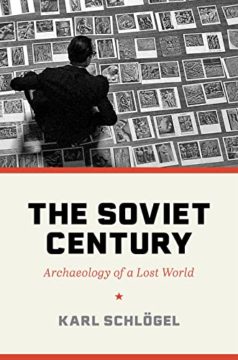 Tony Wood in the LRB:
Tony Wood in the LRB:
The war in Ukraine has prompted a wave of self-critical reassessment among Western scholars of the former Soviet Union. Have studies of the USSR unthinkingly reproduced the logic of a Russian imperial project? Do we need to look at the Soviet period through the lens of ‘decolonisation’? The German historian Karl Schlögel’s own process of introspection began in 2014, with the annexation of Crimea and the Kremlin’s stoking of rebellion in Donbas, which he describes in the preface to The Soviet Century as the ‘drop that made my cup run over’. Russia’s leaders, he writes, had ‘exploited post-imperial phantom pains, nostalgic yearnings and fear of the loss of social status to pursue an aggressive policy’. Published in German in 2017, on the centenary of the Russian Revolution, the book is his attempt to capture the particular texture and experiences of Soviet life, memories of which are fast fading. It is also a personal reckoning, what Schlögel calls ‘a balance sheet, a sort of final account of my studies of Russia or the Soviet Union’. This doesn’t mean he plans to retire: Schlögel has another huge book out in German later this year, on American industrial modernity. But it does mark the end of his engagement with the Russia he studied and knew. It’s almost 35 years since the USSR entered its terminal crisis. As Schlögel puts it, ‘the quarter of a century that has elapsed since that time has shown how painful this process of transforming the former Soviet Union has been.’
More here.
